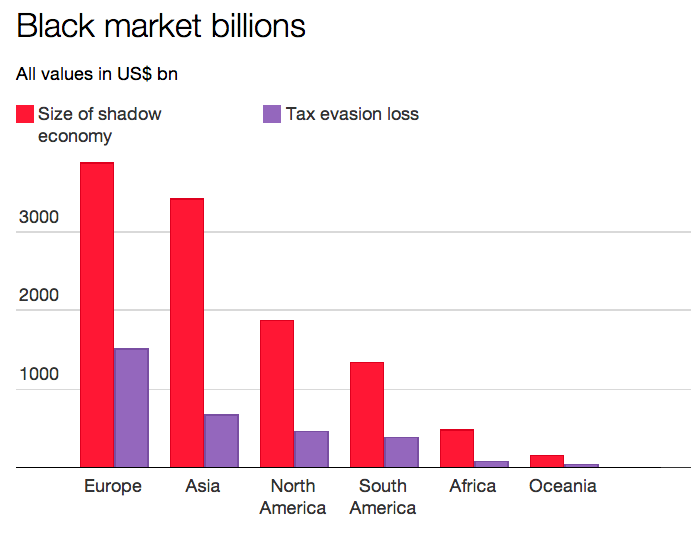Most Americans are aware that cheating on their taxes is a crime, and yet many of them – 17 percent of all taxpayers, according to the IRS – are not complying with tax laws, in some form or another. Together, those who are hiding money and assets or falsify documents to reduce tax liability cheat the government out of an estimated $305 billion (official data for 2010), while unreported income reaches a whopping $2 trillion.

Anyone who reads these numbers can’t help but wonder why aren’t all these people afraid of the IRS. Haven’t they heard how scary an audit can be or how damaging for one’s reputation is a tax crime on record? Or perhaps the profit is so substantial that tax fraud is actually worth the risk? The truth is, a significant number of people are boldly trying their luck in order to obtain financial gains, while others are simply neglecting their legal obligations. Both activities disregard IRS rules and regulations and are considered violations, with offenders receiving penalties ranging from small fines to years in jail.
Honest Mistake or Criminal Intent?
According to the Internal Revenue Service, “Tax evasion is when someone has deliberately provided inaccurate or incomplete information about their activities to reduce their tax liability or obtain undue tax credits and refund.” In the U.S., citizens are legally obligated to file a tax return for the correct amount of ‘income, employment, and excise taxes.’ Failing to comply with the law constitutes tax fraud and will be investigated by the criminal division of the IRS.
Negligence, on the other hand, may also involve failure to accurately report taxes but, unlike tax evasion or fraud, there is no criminal intent – the taxpayer acts in good faith.Common forms of negligence include calculation mistakes on tax forms, understating or overstating income, and erroneous deductions, all of which are usually unintended.
The penalties for understating taxes, for example, depend on whether the understatement is significant or not. That is, if the understatement is higher than the larger of 10% of the correct tax amount or $5,000 for individuals, it is considered substantial. In the case of companies, if the understatement exceeds the lesser of 10% or $10 million, then it is considered substantial. However, both individuals and corporations can avoid penalties for significant understatement and negligence if they prove they have a reasonable basis for the position they took, or if it is obvious they have acted in good faith.
Although there is a fine line that separates effective trust planning and tax crime, skilled IRS officers can easily tell the difference between the two. Here are the tell-tale signs of fraudulent activity officials are usually on the lookout for:
- Falsifying Social Security Numbers
- Concealing or transferring income and assets
- Willfully understating income
- Claiming non-existing dependents in order to obtain tax exemptions
- Altering official documents such as tax returns or checks
- Keeping two sets of financial books
- Passing personal expenses as business expenses
Penalties for Tax Crimes
An individual or a corporation not complying with the tax laws is punishable under Illinois law and may be charged with the following:
- Cheating on taxes owed to the government, which is a felony punishable by up to 5 years in prison and/or fines up to $250,000 and $500,000 for corporations.
- Falsifying the tax return or including misleading information as fact, which is a felony punishable by up to 3 years in prison and/or fines up to $250,000 and $500,000 for corporations.
- Not filing a tax return at all, which is an offense punishable by up to one year in prison and/or fines up to $100,000 for individuals and $200,000 for corporations.
Generally, under reporting income is the most common method of cheating, and the professional categories most likely to do it include clothing store owners, car dealers, doctors, lawyers, telemarketers, hairdressers, and accountants. Getting caught cheating by an IRS auditor may bring on heavy fines and civil penalties or worse, a criminal investigation, in which case you have a great chance of getting convicted and receiving mandatory prison time.
When charged by the IRS, you’re not given the benefit of the doubt – rather, you’re guilty until proven innocent. Since even the most honest of activities can be considered suspect, it’s worth taking the time to make sure your tax returns are in strict accordance with reality – a healthy amount of fear for the IRS will compel you to respect the law and keep you out of prison.







